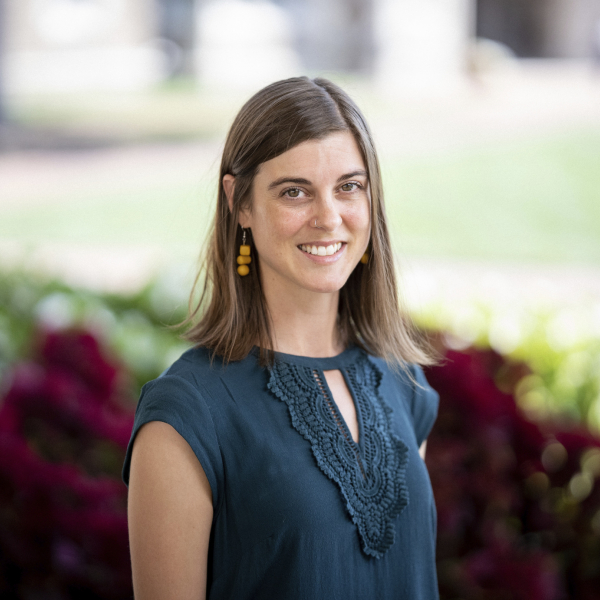K. Eliza Williamson is a cultural anthropologist studying reproduction, disability, and healthcare in Northeast Brazil. Her first book project is an ethnography of a maternal and infant health program that seeks to “humanize” childbirth in Brazil’s universal public health system, and her current research tracks the embodied social impacts of the 2015-16 Zika virus epidemic on Afro-Brazilian families raising children diagnosed with congenital Zika syndrome in Salvador da Bahia. She was awarded a Wenner-Gren Post-PhD Fieldwork Grant in 2022. This will allow her to conduct field research in Brazil during summer 2023 to work with families impacted by the Zika virus epidemic.
In the LAS Program, Eliza teaches:
- Cultures of Health in Latin America
- The Body in Brazil: Race, Representation, Ontologies
- Survey of Brazilian Cultures: Race, Nation and Society
- Hello, Hello Brazil! Popular Culture, Media and the Making of a Nation
- Humans and Others in Latin America: Natures, Cultures, Environments
- Gender, Sexuality and Power in Brazil
In RLL, Eliza teaches:
- Portuguese for Romance Speakers II
- Portuguese Reading and Conversation I
In addition, Eliza organizes the Portuguese Bate-Papo conversation group at Wash U.
Recent Publications:
- Williamson, K. Eliza. 2021. “The Iatrogenesis of Obstetric Racism in Brazil: Beyond the Body, beyond the Clinic.” Anthropology & Medicine 28(2): 172-87. https://doi.org/10.1080/13648470.2021.1932416.
- Williamson, K. Eliza. 2021. “Interventive Care: Uncertainty, Distributed Agency, and Cesarean Section in a Zika Virus Epidemic.” Medical Anthropology Quarterly 35(2): 266-84. https://doi.org/10.1111/maq.12620.
- Williamson, K. Eliza, and Etsuko Matsuoka. 2019. “Comparing Childbirth in Brazil and Japan: Social Hierarchies, Cultural Values, and the Meaning of Place.” In Birth in Eight Cultures (edited by Robbie Davis-Floyd and Melissa Cheney), pp. 89-128. Waveland Press.
- Williamson, K. Eliza. 2018. “Care in the Time of Zika: Notes on the ‘Afterlife’ of the Epidemic in Salvador (Bahia), Brazil.” Interface - Comunicação, Saúde, Educação 22(66): 685-96. https://doi.org/10.1590/1807-57622017.0856.
She is the current Senior Book Review Editor at the Journal American Ethnologist (2022 - 2026). Her writing can also be found in Somatosphere, Environmental History Now, and Human Ties.
Eliza’s research has been funded by the Wenner-Gren Foundation, Fulbright IIE, the Fulbright-Hays Program, the Association for Feminist Anthropology, and the Brazilian Studies Association, among others. She is a faculty affiliate in the Center for the Study of Race, Ethnicity and Equity at WashU and a member of the Disability and Accessibility Committee of the Brazilian Anthropological Association (CODEA-ABA). She founded and coordinates the new multidisciplinary Disability and Embodied Reading Group (funded by the Center for the Humanities) along with Julie Singer and Cynthia Barounis.

